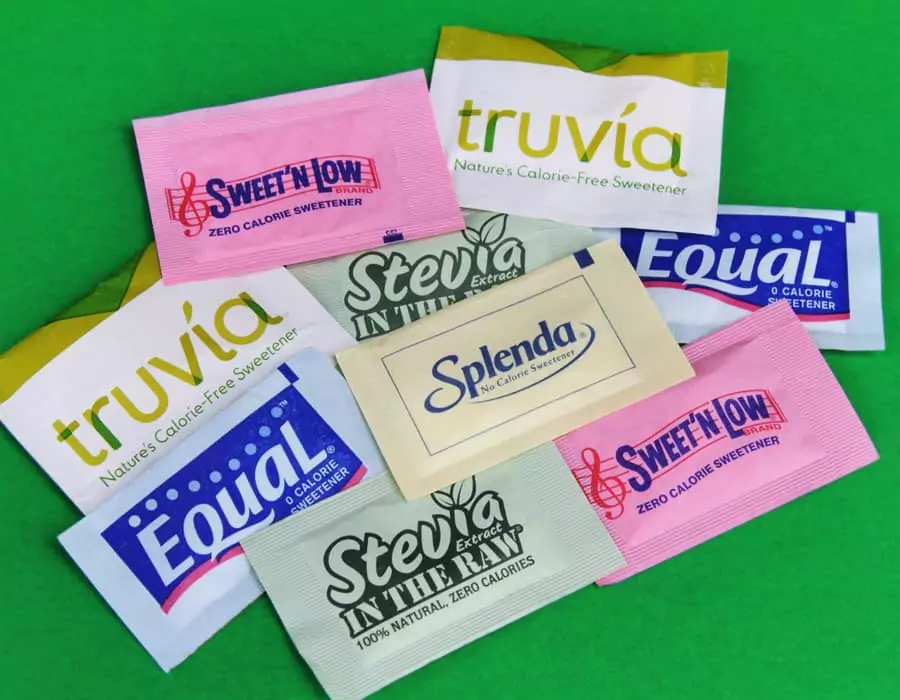
UP TO 40% OFF SITEWIDE






Are Artificial Sweeteners Safe for Diabetics?


A lot of people use artificial sweeteners to avoid calories that can come from table sugar. Especially patients with type I and type 2 diabetes tend to use artificial sweeteners frequently. Are they really helpful? Did I have serious side effects on diabetics? How much artificial sweetener is safe? Today we are going to answer these questions.
Increased incidence of obesity, diabetes, and metabolic syndrome along with customer awareness, caused an increase in the use of low-calorie artificial sweeteners. They can generate very intense sweetness with few or no calories. The food industry uses them in foods, beverages, drugs, and even mouthwashes.
Most of these artificial sweeteners are not broken down by the body. As a result most of the time they do not provide calories. For some people, these products are great alternatives to sugar.
The potential decrease in calories and carbohydrates could help long-term blood sugar control, weight management, and/or cardiovascular risk. Remember, artificial sweeteners such as Splenda, Stevia, and Sweet’n Low themselves may not add calories, but many foods that use these sweeteners may have calories and carbs.
Label claims such as "sugar-free," "reduced sugar" or "no sugar added" are not necessarily carb-free food. It is imperative for you to look at the entire nutrition facts label to understand how many carbs you are eating.
Are artificial sweeteners healthier than natural sugars?
We find refined sugars that are natural in foods such as milk, yogurt, fruits, and other vegetables. Sometimes natural sugars also, an isolated or concentrated forms. Sometimes manufacturers will add these natural sugars into other foods or fruit juices. Regardless headed sugars natural or unnatural can be harmful because they can lead to overconsumption.
Do artificial sweeteners help with weight loss?
Studies show that low-calorie sweeteners can actually help with weight loss unless patients or people do not make up the calories that they save with low-calorie sweeteners by eating other carbohydrate-containing foods. Most studies did not prove weight loss of benefit with artificial sweeteners due to the fact that many people end up compensating by eating other carbohydrates and sugars.
If you want to have a measure that is reliable I would suggest less than 10% of calories coming from added sugars is a fairly good goal. Unfortunately added sugars increase the risk of developing type 2 diabetes high blood pressure and heart disease. The current evidence also does not support that artificial sweeteners would lead to weight gain diabetes or changes in appetite.
If you use artificial sweeteners carefully without adding further calories from other carbohydrate-containing foods or beverages it can actually help your diabetes and weight management.
What are the disadvantages of artificial sweeteners?
Overstimulation of sugar receptors from frequent use of artificial sweeteners may cause desensitization of the taste buds so people may start to find less intensely sweet foods less appealing and unsweet foods, such as vegetables, enjoyable and unpalatable.
As a result, this can in turn cause people to turn to high-sugar foods. Artificial sweeteners may prevent us from associating sweetness with caloric intake. Therefore, people may crave more sweet tastes.
this can cause choosing sweet stuff over nutritious food. this eventually leads to weight gain. Like everything else, we would recommend using artificial sweeteners in moderation. They are not free food and I would not use artificial sweeteners to make the beverage or the food super sweet.
What about Sugar alcohols?
Sugar alcohols are naturally found in certain fruits and vegetables. some of them can also be manufactured. Sugar alcohol does not contain real alcohol which is ethanol. You can easily identify sugar alcohols on nutrition labels because they all and with “ol” such as sorbitol. Sugar alcohols aren’t considered intense sweeteners because they aren’t sweeter than sugar.
In fact, some are less sweet than sugar. This can be an advantage because as we discussed having too much sweet taste can desensitize you from tasting this weakness in natural foods. Sugar alcohols also contain calories. However, they have fewer calories than regular table sugar.
On the other hand, these benefits come with an expense as most sugar alcohols create gastrointestinal distress such as bloating and diarrhea. In summary, Obese and lean, diabetics and nondiabetics, adults and children almost everybody uses artificial sweeteners nowadays.
Health awareness among the population and extensive marketing by food companies increase the use of artificial sweeteners. They allow more fluid choices for the health-conscious population and increase the palatability of the many food options. However, many of their proposed beneficial effects are still uncertain based on clinical studies.
If carefully used by diabetic and insulin-resistant patient populations it may help reduce the total calorie intake. If total calorie intake does not go down with the use of artificial sweeteners it may cause the exact opposite effect and can actually worsen insulin resistance and obesity in some cases.
Author: Ahmet Ergin, MD, FACE, CDCES, ECNU Endocrinology
Written By Dr. Ahmet Ergin
465 total articles
Meet Dr. Ahmet Ergin, a highly skilled and dedicated endocrinologist with a passion for diabetes care. Dr. Ergin earned his medical degree with honors from Marmara University in Istanbul. He completed internal medicine residency and endocrinology fellowship at Cleveland Clinic. Dr. Ergin is board-certified in Internal Medicine, Endocrinology, Diabetes, and Metabolism due to his vast medical expertise. He's a certified diabetes educator, author of “The Ultimate Diabetes Book,” and founder of “the SugarMD YouTube channel.” Dr. Ergin offers exceptional diabetes care to his patients in Port Saint Lucie, FL, helping them manage effectively. For a closer look into his insights and experiences, connect with Dr. Ahmet Ergin on LinkedIn, Instagram, and YouTube.”
Disclaimer: These statements have not been evaluated by the Food and Drug Administration. Information on this website isn't intended to treat, cure or prevent any disease. Discuss with your doctor and do not self-treat.
Products









